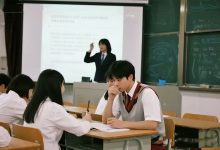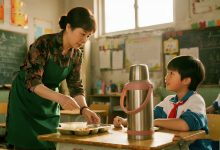I am Liu Chuang, and I was a male nursing assistant at a top hospital in Beijing. I have been doing it for quite a few years, in which I have witnessed so many shocking things that most people would be shocked. For example, once I was at a patient floor and I saw somebody trying to buy more life literally. Nevertheless, the most painful? Elderly, especially those who were suffering from Alzheimer’s.
There were some who merely forgot what was happening around them. There were some who became so violent that they were screaming, hitting, and not allowing any treatment. And lastly, those who had gone to another place, which was different from the reality.
The Soldier Who Feared Needles
Old Du and his son, Du Lin, were the first people I got acquainted with at the shared ward. Old Du could be heard not only from the adjoining room but also from the end of the corridor. His signature, long and logic-defying lamentations of “Wooow, wooow!” were indeed very loud and could be seen by the whole ward window which was the farthest in sight down the corridor.
After investigating? He was scared of needles only.
Though the nurses usually had to bring the IV through the hallway, this man—a war veteran who was shot by Japanese soldiers—used to behave as if he were a child who was not used to getting harm. Du Lin his son, would wrestle him down while he was sweating and swearing loudly. In one of the incidents during a struggle, Old Du grabbed the nurse’s arm out of the fight.
SMACK.
Du Lin directly—but very hard—hit his father on the cheek. The shock which stunned Old Du just for the moment the needle was inserted.
Then Du Lin took him in his arms like a baby. “There, there, old man. You’re fine.”
Once off the IV, Old Du was all grins—a plump, toothless Buddha. He would then definitely give you his bullet scar as proof that he was the one who shot. “This? Was not painful! But needles?” He would indicate them with his finger. “Terrible.”
Info from Du Lin: He told me he was laid off years ago and stayed at home to look after his dad. “My siblings have proper and real jobs. Me? I am just the guy who keeps the old man alive.“
The Professor Who Lost His Filter
Professor Chen was a retired scholar, quiet and polite… until the female doctors came in, that is.
During a routine exam, a young woman doctor demonstrated how to check his abdomen. Chen let her press gently around his stomach—then all of a sudden he said, “Your hands are so soft. Try lower. Three inches lower.”
The room was stunned. The students were trying to hide their laughs. The doctor was blushing and leaving.
The son later pulled me aside. “My father was a gentleman his whole life. This isn’t him.“
But it had to be him after all. Alzheimer’s had wiped out the filters. He would yell at them, refuse to take medicine, and accuse the nurses of poisoning him, and even reach out for their helping hands. “I would rather it was cancer. At least then he would still be the one,” cried his daughter-in-law.
When It Came Home
Two minutes later, the phone call from my mother. “Your grandmother has lost her mind.”
She was a night wanderer and always thought intruders were in the house. She forgot who we were. On some occasions, she would be smiling and calling me by my childhood name and an hour later, she would scream that I am a stranger and a burglar entering her house.
We had to lock the kitchen, hide all the sharp objects, bathe her like a child in desperation. She would kick dogs, throw vegetables at people in the market, and yell at kids who called her “demented” but when she saw toddlers, she would always be gentle and “Little Chuang,” she would say, confusing them with me.
Eventually, she lost the ability to swallow. Pneumonia was the cause of her death. We didn’t perform resuscitation.
I stood at her funeral and reflected: She was not a patient. She wasn’t “demented.” She was only confused—a child who drifted through the ages and was unable to locate her way back.
She was the one that we had to say goodbye to.








